4 years ago, Black Lives Matter protesters demanded change. Here's where Calgary police are at now
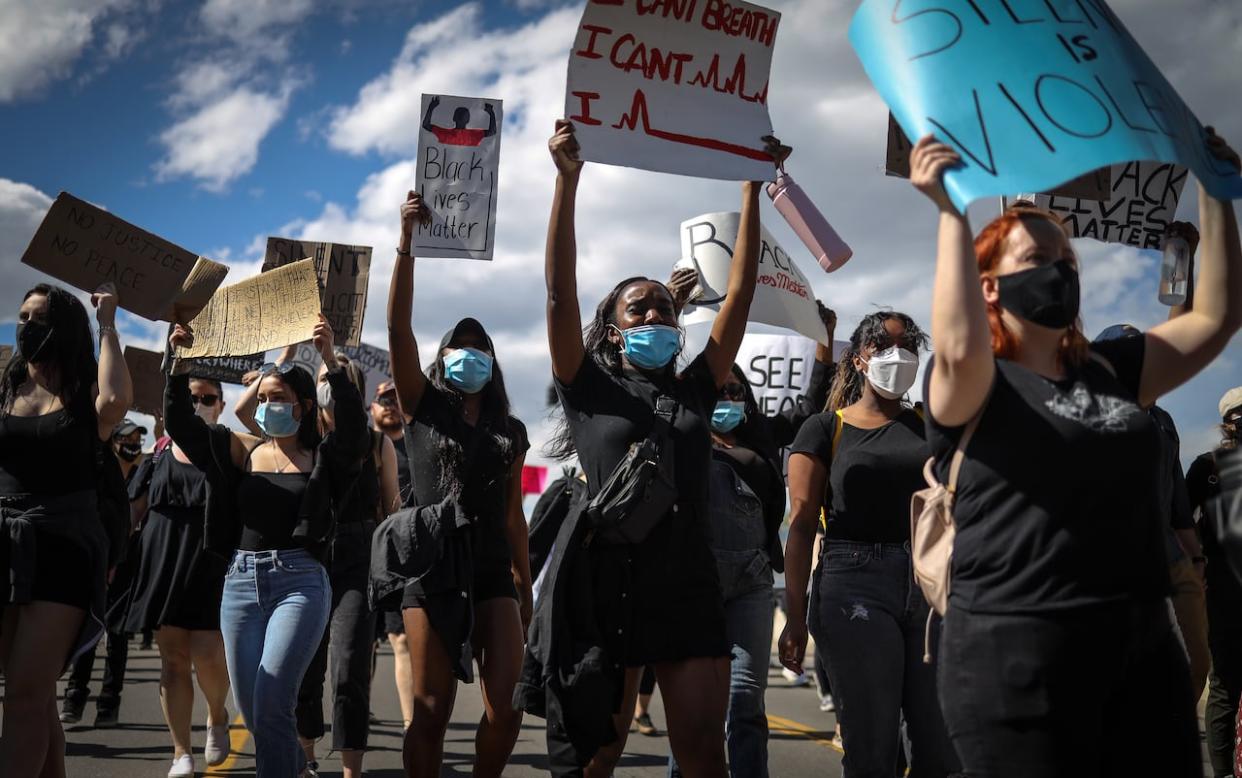
This is Part 2 of a CBC Calgary look at building trust between police and Black communities. Part 1: Talk frankly. That's how to rebuild trust between police and the Black community, say advocates
Shuana Porter used to march the streets with Black Lives Matter — protesting police treatment of Black Calgarians.
It was an effort to make change from the outside.
Today, she's easier to find inside Calgary Police Service headquarters. The woman, originally from Jamaica, is embedded as a civilian, leading CPS's new anti-racism advisory committee and racial equity office.
It's part of a shift in approach for the Calgary police — they're hiring community expertise, drawing their knowledge and critiques inside the police organization.
That has benefits but is also opening police up to new criticism.
But first let's look at what this committee and the new racial equity office are doing.
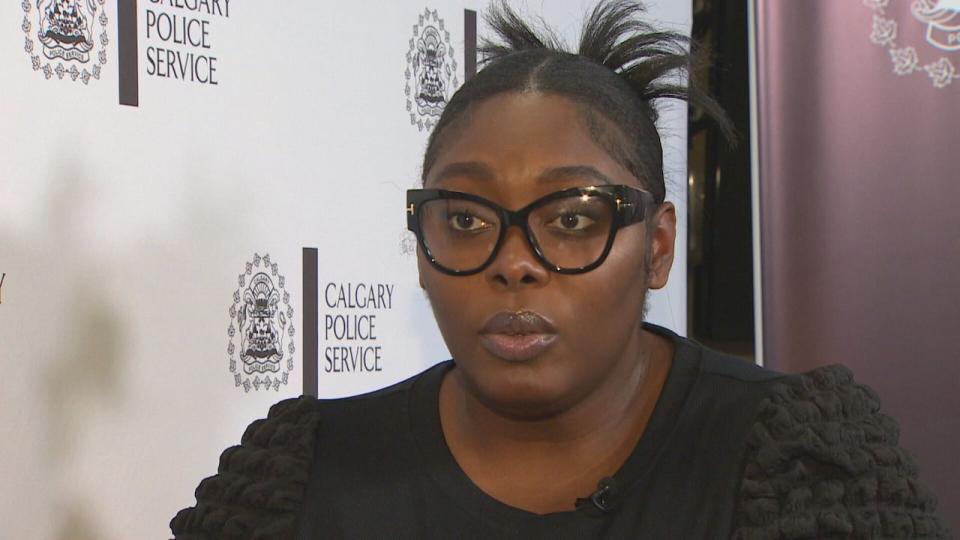
Shuana Porter was an organizer for the Black Lives Matter protests in 2020. Now she works for the Calgary Police Service leading its racial equity office. (Mike Symington/CBC)
These current efforts date back to 2020, when citizen groups such as Defund2Fund called for police to work with affected communities to better understand how police impact them. Those calls found support, and Calgary city council passed a six-part motion to address systemic racism.
The external anti-racism committee set up by police is made up of 15 members from various marginalized communities, who are able to ask officers to explain their practices to them unit by unit. Then they work with Porter's office and make recommendations.
The racial equity office also trains officers to recognize their own bias, and is helping police start to collect race-based data in a responsible way.
They're also working with the professional standards section to survey past complainants, and ran a workshop to improve training, said Porter. That workshop looked at questions such as: "How do we teach culture humility? How do we teach language sensitivity? How do we teach dealing with complaints when people are talking about race?"
It's not loud and flashy like a protest. But it's action, she says.
"This is how we actually change," she said. "Starting an office, doing training, having committees, having those conversations. That is what change looks like."
"It started from just being on the streets with thousands of people. Being in the front, hearing all the things and just being like, once this ends, it can't end here," she said.
"I'm happy that I stuck with it and now I'm able to be a part of the actual change, day in and day out. It's legacy work for me."
But not everyone shares this excitement.
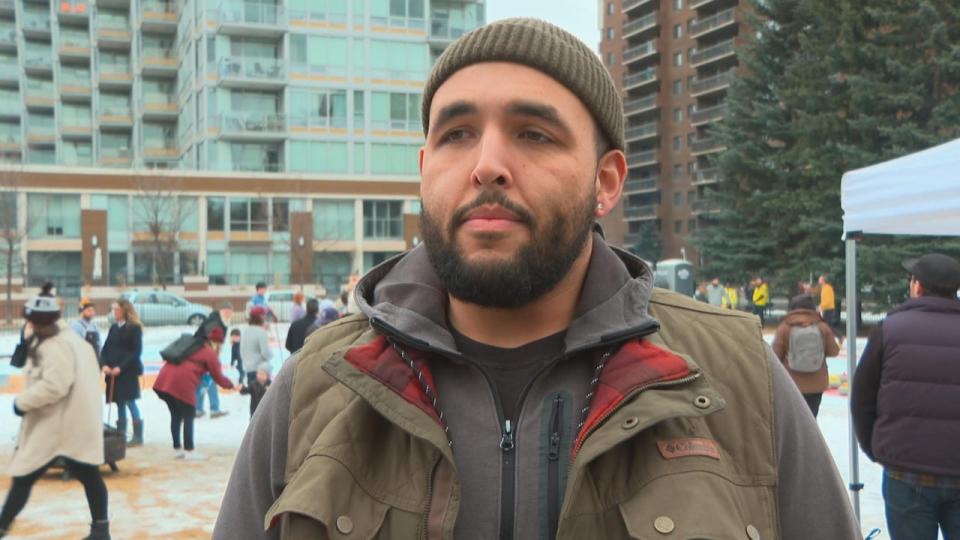
Before he was elected to city council, Ward 8 representative Courtney Walcott lobbied for police to create an external anti-racism advisory committee. (Helen Pike/CBC)
Courtney Walcott, now a city councillor, was part of Defund2Fund and pushed for the external committee to advise police, before he was elected to council. He says the concept is important but the committee lacks transparency.
"As far as the committee goes, I have no idea what's happening. And that's primarily because they don't speak publicly," he said. "Everything is funnelled through CPS."
Police required everyone on the committee to sign a non-disclosure agreement. That can give police confidence to share more sensitive information, but he said it means committee members can't share what they're learning with their communities.
It's hurting the effort, Walcott said. "Make it public. People who wanted to be involved with this wanted to have a meaningful conversation with the public and the police."
He has a second criticism of this effort as well.
It was a gag order. It wasn't fair at all. - Adam Massiah
He says police haven't just hired Porter, and haven't just quieted 15 knowledgeable community leaders through non-disclosure agreements. They've also hired five community leaders to a new civilian position called "community mobilizer."
These were chief executives and key staff members in small, local non-profits. It gives these new hires the opportunity to have steady pay doing a version of the work they were doing. But it hurts the non-profit, and for the individual, it comes with a loss of independence and ability to participate in public debate.
"It makes the CPS look great and there is now a higher community presence of CPS-related services," Walcott said. "But there's less community presence from those non-profits. We're actually seeing a dilution of public service, community-facing organizations."
Walcott says he'd rather see the same city funds go to make the non-profits more sustainable.
He's not the only one saying this.
Adam Massiah worked with Porter during the Black Lives Matter protests and was co-founder of United Black People's Allyship. He was originally on the external advisory committee but said he was dismissed when he inadvertently broke the non-disclosure agreement.
"It was a gag order. It wasn't fair at all," he said, looking back at that time. "We sit in this room to discuss such an enormous problem that is directly impacting (our) communities and we can't even tell them what the hell we're talking about."
CBC Calgary spoke with another current member who declined to speak publicly because of the non-disclosure agreement, as did one of the community mobilizers.
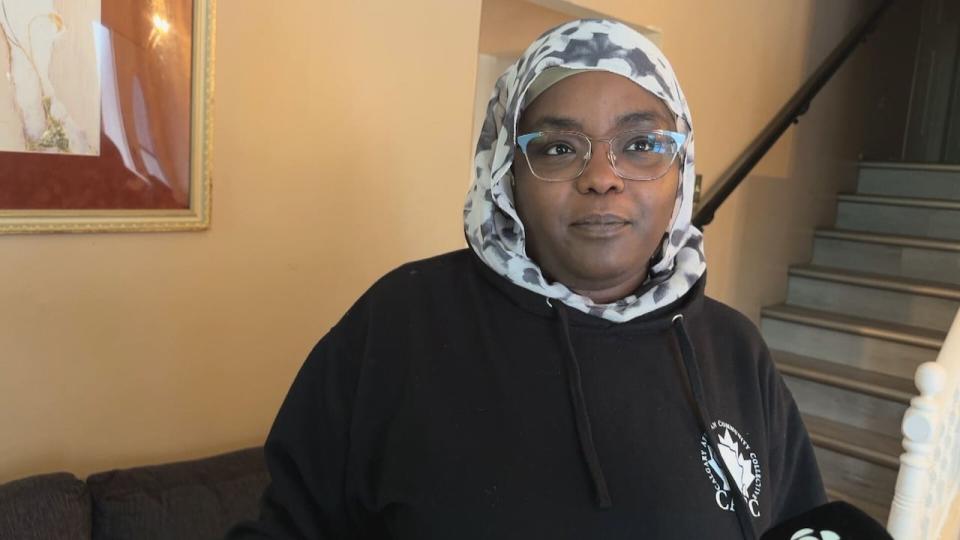
Hagir Sail is a consultant with the Calgary African Community Collective. She believes it's going to take outside pressure to ensure police make the changes necessary. (Elise Stolte/CBC)
Hagir Sail, a consultant with the Calgary African Community Collective, rattles off several names of people who used to be outspoken and now work for the Calgary police.
"I agree with (Porter) that you need to work from the inside to make change, but you need the outside pressure as well," she said. "Police are going around hiring community members who would otherwise be able to say something but now they can't because now they work for the Calgary Police Service."
Now even if they do speak publicly, Sail says it's going to be more scripted and on point: "It leaves a bitter taste in your mouth."
But Porter objects to that characterization. She's still an activist, she says, whether she's protesting on the streets or working in a boardroom.
"I am first and foremost a Black woman, so I don't think someone can co-opt my lived experience," she said.
Being outside of the institution does not move the work forward. It doesn't. - Shuana Porter
"Secondly, being interviewed, being asked these questions itself is showing that I'm continuously doing the work. We are talking about the matter of life and death — not just physically, but emotionally, spiritually, financially.
"And (fixing this) is going to take more than talking, more than protesting. Being outside of the institution does not move the work forward. It doesn't. We talk about it, we advise about it. But when decisions are being made, you have to be part of the table."
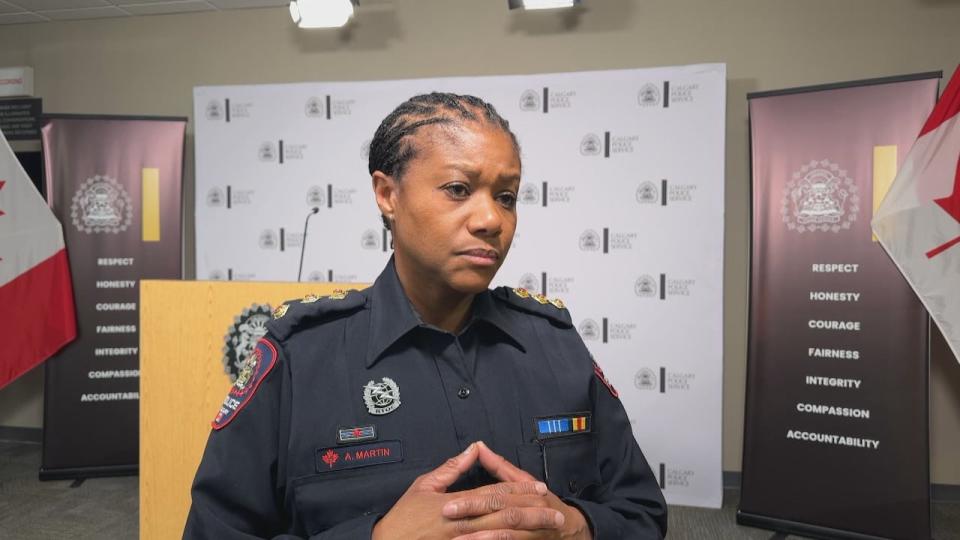
Calgary police Insp. Avril Martin leads the community services section, which includes the diversity resources team, racial equity office and hate crime and crime prevention teams. (Elise Stolte/CBC)
Insp. Avril Martin is in charge of the community services section, which includes the racial equity office, community mobilizers and several crime prevention teams.
She said the service also partners with non-profits, such as the Centre for Newcomers, Immigrant Outreach Society and Action Dignity. They offer contracting options, too.
As for hiring people, "we rely heavily on the expertise of our civilian employees," she said. "That's why we are going out and saying to the community that your expertise are valued here. This is a great place to work and to grow in your profession, not just as a sworn member, but also as a civilian employee."
"There's opportunities for full -time employment, there's opportunity for consulting and there's opportunity for partnerships. So all three are on the table."
For more stories about the experiences of Black Canadians — from features on anti-Black racism to success stories from within the Black community — check out Being Black in Canada, a CBC project Black Canadians can be proud of. You can read more stories here.

(CBC)


